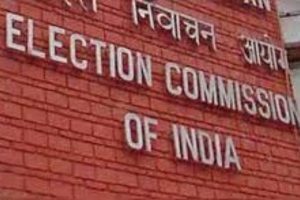In a bid to stabilise the troubled ties with Turkey, US President Joe Biden is heading to his first face-to-face meeting with his Turkish counterpart Recep Tayyip Erdogan in Brussels.
As strategic partners in global affairs, Washington and Ankara will be meeting each other on the sidelines of the NATO summit on Monday, amid long-standing tensions over a host of geopolitical issues.
Advertisement
One of the significant points of conflict with its NATO ally members is Turkey’s possession of the Russian S-400 missile defence system.
However, signalling to avoid direct confrontation with Ankara, Biden had directly communicated with Erdogan ahead of his decision to recognise the Armenian genocide, which Turkey rejects.
“Biden doesn’t have much interest in or expectations from Erdogan beyond pursuing a few transactional deals, such as further US-Turkish cooperation in Afghanistan and Ankara de-escalating tensions in the Eastern Mediterranean in exchange for Euro-American goodwill,” said Aykan Erdemir, senior Director of the Turkey programme with the Foundation for Defence of Democracies, and a former member of the Turkish Parliament.
“For Erdogan, the stakes are higher,” he said, pointing to the Turkish President’s push to walk back tense relations with the US and NATO as a way to help relieve an economic crisis and a downturn in the Turkish lira.
“The Turkish president is desperate to offer this meeting to domestic and global investors as proof that bilateral relations are improving,” Erdemir added.
“We are open and transparent in all talks (on the S-400 issue)” Defence Minister Hulusi Akar reportedly said at the opening of a NATO building in Istanbul.
The Biden administration has maintained strong criticism against the S-400, saying that the Russian technology is an intelligence and security threat to the US and NATO operations in the region, the Hill reported.
US State Department spokesperson Ned Price had rejected that the Biden administration is open to any sort of compromise over Turkey’s continued possession of the Russia-made system.
“It’s incompatible with Turkey’s status as a NATO ally,” Price said.
Biden took a tough stance on Turkey during his campaign for US presidency – calling out Turkey’s involvement on the side of Azerbaijan in its conflict with Armenia last fall besides criticising Donald Trump for “coddling Ankara”.
After assuming office, Biden’s State Department has issued a number of critical statements against Turkey, including rejecting the country’s claims that the US was involved in a 2016 coup attempt.
Biden held his first call with the Turkish leader in April, an effort considered to offset tensions ahead of the President’s recognition of the Armenian genocide.
“The reaction in Turkey to that announcement wasn’t as big as one would have thought,” said Berkay Mandiraci, the International Crisis Group’s Turkey analyst.
Deniz Yuksel, Turkey advocacy specialist with Amnesty International, said that while Biden has sought to take a more measured tone in office to create stability in the US-Turkey relationship, he has committed publicly to putting human rights at the center of his foreign policy.
White House press secretary Jen Psaki has said that the Biden-Erdogan meeting is an opportunity for face-to-face diplomacy to “constructively work together where there’s opportunity, and also areas where we have strong disagreement”.
Turkey holds the keys to important security issues for the US and Europe, including in Syria, Iraq and Afghanistan, where Biden is working with NATO allies to coordinate the withdrawal of its forces.











